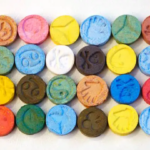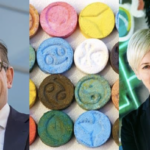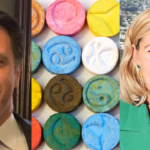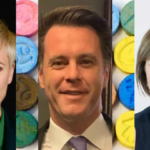NSW Pill Testing Is Welcomed, But No Substitute for Robust Drug Law Reform
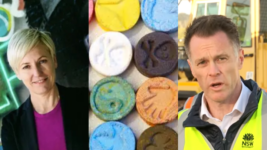
A government-sanctioned pill testing trial happened at the two-day Yours and Owls music festival held in Wollongong last weekend. So, for the first time ever in the state of NSW, festivalgoers were able to have their illegal drugs tested for toxicity and strength, and those punters with results that posed issues were left to toss their dubious drugs into the bin to avert a possible harmful incident.
That a pill testing trial has taken place in this state is significant, as the campaign to see the harm reduction intervention that has been utilised in a number of European jurisdictions since the 1990s, has been ongoing for a decade, and despite its strong proponents, the conservative major party politicians of Macquarie Street had been increasingly determined to ensure it never took place.
NSW Labor greenlighted the trialling of the evidence-based intervention straight after it held the long called for NSW Drug Summit late last year. And while it’s not surprising Labor, rather than the Liberals, finally permitted drug checking in this state, the Minns government giving it the thumbs up was no given, especially as the NSW premier has revealed himself to be opposed to drug law reform.
Premier Chris Minns ran for office in 2023 on a Labor platform that included the holding of a drug summit. Yet, after he was unsuccessful in stalling on it since being elected, the forum was held in a disjointed manner over four days and participants went on to declare that the event was set up to fail whilst it was still underway.
As NSW Greens drug law reform spokesperson Cate Faehrmann has since pointed out, while the holding of the first pill testing trial in this state was a welcomed development, there were a number of questionable aspects to it that again raise doubts about the government’s commitment to reducing drug harms.
Slim pickings
“Of course, it’s a good thing that NSW Labor has finally agreed to trial pill testing,” Faehrmann told Sydney Criminal Lawyers. “Successive state governments have continued to pursue a zero-tolerance approach to drugs despite increasing public support for drug law reform, including pill testing.”
“It’s disappointing that we are already at the end of summer and only one festival has had the government-run pill testing rolled out,” the Greens MLC added.
In terms of trial outcome, Faehrmann outlined that only 103 festivalgoers out of 30,000 attendees actually participated in the trial, which was quite low when compared with the 257 individuals that tested their illicit substances at the first pill testing trial in Queensland, which was out of a poll of roughly 5,000 punters, who’d attended the Rabbits Eat Lettuce festival in March 2024.
An independent organisation run by medical and harm reduction experts, Pill Testing Australia conducted the pill testing trial in Queensland, and it too ran the nation’s first sanctioned drug checking trial at the Groovin the Moo festival in the ACT back in 2018.
A distinct difference at last week’s NSW trial, however, was that NSW Health was charged with implementing it, which meant it was run by the state government. And another clear difference compared to other Australian jurisdictions that have now trialled drug checking is that NSW police continued to saturate the event with their presence and that of their drug detection dogs.
“This would seem to suggest that many people do not feel as comfortable handing their drugs over to a government employee, particularly after having to run the gauntlet of police and sniffer dogs,” Faehrmann said.
“It’s not rocket science to work out that a heavy police presence, with dogs and the threat of strip searches, at a music festival would impact the effectiveness of any pill testing service being provided at that same festival,” she underscored.
Designed to fail
The Minns government pill testing trial announcement in December came directly after the drug summit, which was staggered over two days early last November and another two in December, and even before it commenced, the Uniting Church NSW.ACT, which had advocated heavily for the event, raised questions about the haphazard manner in which it was being organised.
These fears were then realised over the two days that the forum was held on Gadigal land in Sydney in early December and assessments in the wake of the event were critical of the lacklustre way in which it had been organised.
Indeed, the pill testing announcement came across as a consultation prize for those in the alcohol and other drug sector who’d been left despondent by the summit.
“Many stakeholders in the AOD sector were disappointed with how carefully managed and controlled the NSW Drug Summit was,” recalled Faehrmann. “It was especially devastating for everyone attending when the premier and health minister ruled out decriminalisation at a press conference during the summit in Sydney.”
Attendees at the first day of the Sydney leg of the summit, which was held at the International Convention Centre, became aware that as they’d been waiting for the forum to begin early on the first morning, the health minister was out the front telling the press that the key reform experts were hoping to progress – drug decriminalisation – was not on the agenda.
Drug decriminalisation is a policy that involves the removal of criminal sanctions against the offence of drug possession and for the use of illicit substances. The relatively recent NSW inquiry into the drug ice and a NSW coronial inquiry into the death of six people at NSW music festivals both recommended the roll out of decriminalisation.
Faehrmann added that many summit attendees arrived expecting talk of significant change after a decade of campaigning for drug law reform and release of numerous studies revealing the futility of the drug war. But instead, they found themselves attending a long-sought-after summit, only to watch it turn into a farce.
“Many people told me that it felt like a box ticking exercise for the government and that it was a conference, not a summit,” the Greens drug law reform spokesperson explained.
“It appeared to be set up to be as least challenging to the government as possible, yet despite this, many attendees pushed strongly for drug law reform, particularly for removing criminal penalties for all drug use.”
The struggle continues…
The reason the experts were so focused on the drug summit was that the first such forum was held by the Carr government in 1999, and it resulted in official changes in attitudes and significant reforms, with the go-to example being the Uniting Medically Supervised Injecting Centre in Kings Cross.
So, with the coming of a Labor government after a decade of the Liberals conservative drug law reform stance, it was expected changes in professional and community attitudes regarding how to deal with issues around illegal drugs might be reflected by the new administration, however no one foresaw the shift to the right taken by a government headed by a Liberal premier in Labor branding.
Faehrmann agrees that it’s now “looking more and more unlikely that the current NSW Labor government has any genuine interest in making serious progressive drug law reform in this term of parliament”.
Although there is one last remaining hope of a progressive outcome from the 2024 NSW Drug Summit and that’s the forthcoming report and recommendations being put together by summit cochairs former NSW Labor deputy premier Carmel Tebbutt and former NSW Liberal opposition leader John Brogden.
But then recommendations will also need a progressive premier to progress them.
As far as Faehrmann is concerned, regardless of the setbacks, the work continues until the personal possession of drugs is decriminalised, along with cannabis legalised and the drug dogs and strip searches ditched. And she added that she still wants to see a medicinal cannabis drug driving defence passed into law.
“I’m awaiting the recommendations arising out of the summit impatiently and will be working to do whatever I can to ensure key recommendations are implemented,” the Greens member outlined, adding that drug law reforming MPs continue to exist across all NSW political parties, and they’re ready to progress real change.
“We certainly didn’t need a four-day-long conference to reform our archaic drug laws,” Faehrmann said in summing up. “The evidence has been well and truly in, that things have to change if we’re to save lives and reduce drug harm.”


